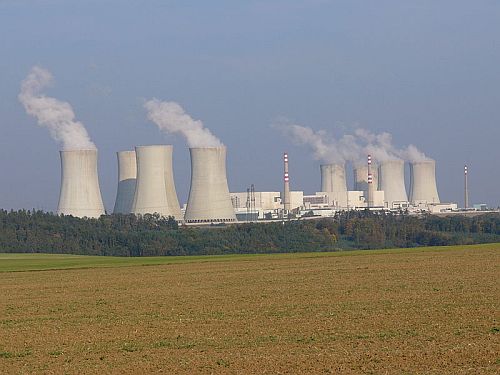“The chickens are coming home to roost”. So said the Ukip energy spokesman, commenting on the news that businesses are being asked to join a 1970s style energy rationing program this winter to stop Britain being plunged into darkness. Offices and factories will be offered compensation to shut down for four hours a day so that energy can instead be diverted to households.
The scheme, reported in the Daily Mail, is part of a series of measures set to be taken by National Grid which also includes asking owners of decommissioned gas, coal and oil power stations to turn them back on. Ofgem, the industry regulator, has welcomed the proposals but pointed out that “it would cost quite a bit”. It comes as the gap between energy consumption and production has narrowed to dangerous levels, leaving the system increasingly vulnerable to unexpected events.
“The Government has been crossing its fingers and hoping that it’s all fine. It’s blindingly obvious that if you have a tight market then you will be more vulnerable to shocks,” analyst Peter Atherton of Liberum Capital told the Daily Mail.
Fires at two coal stations, one in West Yorkshire, the other in Shropshire, have put those sites out of action, and a gas station in Essex has been unexpectedly closed since the summer. However, National Grid indicated that these setbacks have merely brought the deployment of this plan forward one year.
Under the plan, businesses that sign up to the scheme will be paid a compensatory amount and may be asked to shut down between 4pm and 8pm on any given day between November and February. They will be paid the compensation even if they are not called upon to shut down. In addition, they will also receive an above-market rate payment for any electricity not used.
The scheme echoes the three day working weeks suffered by Britain during the winter of 1973/74, in which power was tightly rationed. Under Conservative Prime Minister Edward Heath, businesses were only allowed three consecutive days’ worth of electricity a week whilst households were subject to a ‘three hours on, three hours off’ supply. Heath lost the general election in February 1974.
Yesterday National Grid also contacted the owners of recently closed power plants to enquire as to whether they could be brought back online within the next few weeks. This is an option that has never before been used in Britain, and has been predicted to cost tens of millions as the owners would be paid all costs involved in getting the stations up and running, plus an above market rate price for electricity generated. They would be required to produce energy between 6am and 8pm between November and February.
The measures were “unprecedented”, energy analyst Angelos Anastasiou of Whitman Howard Bank told the Daily Mail, adding “You would need to get a lot of staff back on site, and would need to carry out trials before you can get it up and running. It could run into tens of millions, depending how many stations you needed to bring back.”
Speaking to Breitbart London, Ukip’s energy spokesman Roger Helmer MEP commented “UKIP has been warning for years that the UK’s energy policies, driven by Brussels, would lead to blackouts and supply shortages. That’s why our UKIP energy policy document is sub-titled Keeping The Lights On. Now the chickens are coming home to roost.
“It is a bitter irony that DECC [the Department of Energy and Climate Change] is planning contracts with commercial companies to use diesel generators to fill the gaps when the wind doesn’t blow. It is bizarre that we are paying over the odds for diesel generators when the plan was to cut emissions.
“The near-certainty of black-outs is not the only problem. We’ve also forced energy prices sky high, driving businesses and jobs and investment out of the UK, and leaving households and pensioners in fuel poverty”.

COMMENTS
Please let us know if you're having issues with commenting.